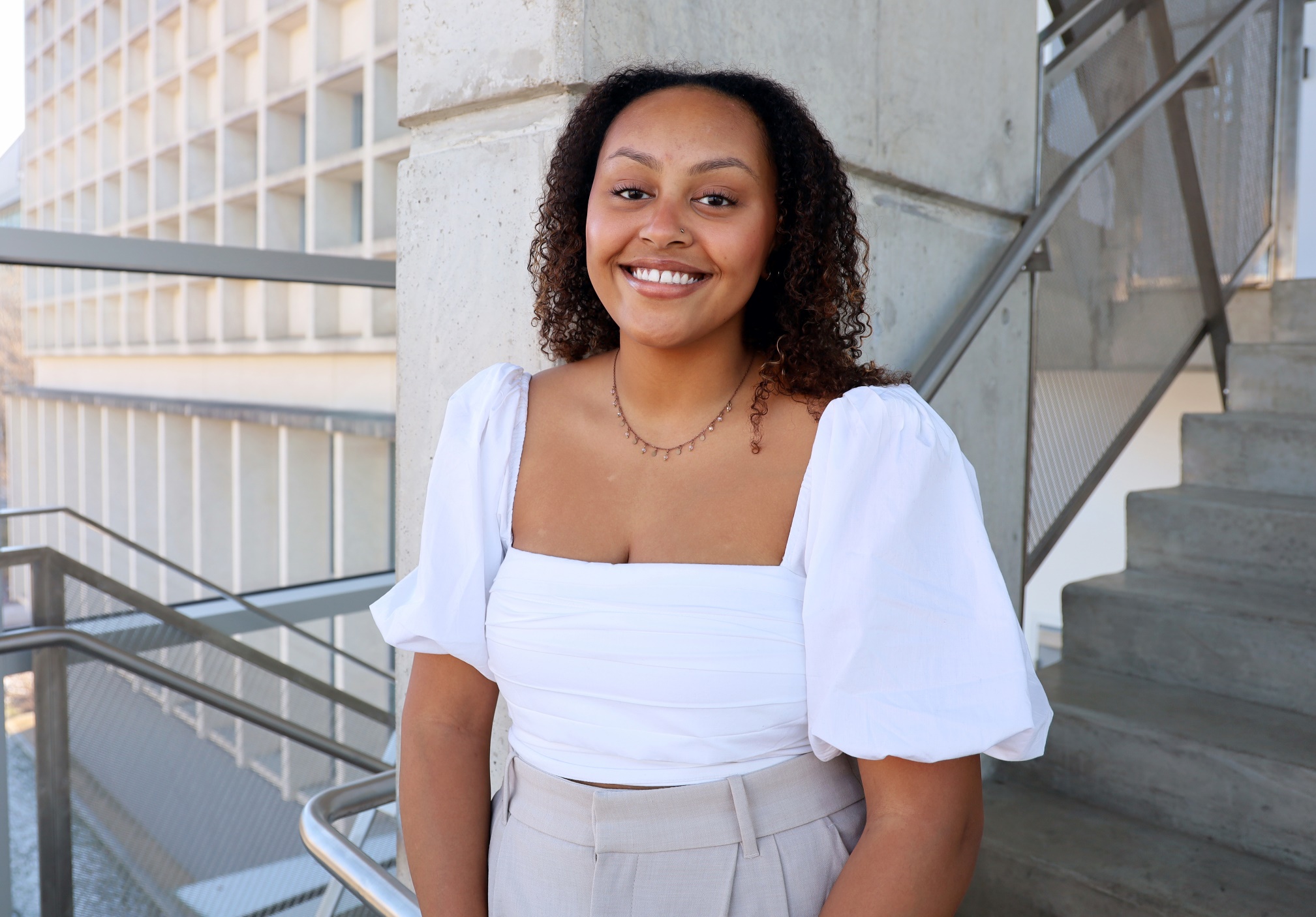Public Health Buckeyes: Maraki Wondwossen
Public health combines BSPH student's passion for community, health and serving others

Meet Maraki Wondwossen, a junior majoring in public health sociology who aims to work toward closing gaps in racial health disparities and advance health equity across ZIP codes.
Question and Answer
What drew you to a public health education?
Coming into college, I wasn’t sure what path I wanted to follow in my career. I learned about the undergraduate public health program in my exploratory survey course and realized it was the perfect overlap of my interests and passions: community, health and serving others. I aspired to learn more about how I could use this intersectionality to build my career.
What areas of public health are you most passionate about?
There are so many social factors of health that, if addressed properly and effectively, would help close the gaps in racial health disparities. I’m passionate about utilizing my rights and privilege as an individual to further advance health equity across ZIP codes.
What has been the most impactful part of your time at the College of Public Health?
My second and early third year of college, I was struggling with my mental health, personal life and academics, and didn’t know what to do. Kynthia Droesch (senior director of the Office of Academic Programs and Student Services) took notice and helped me compose a game plan to get back to being the strong, confident student I was used to being, as well as supporting me through my personal endeavors.
What are your goals for the future?
Upon graduating, I’m hoping to work in Columbus in a position that allows me to work with local communities in addressing health issues and implementing interventions. I also hope to get my MPH or MHA as a working professional and expand upon my career after that.
What advice would you give to students considering majoring in public health?
Take advantage of the plethora of knowledge that comes from your professors and the resources the college provides. Some of the most interesting conversations I’ve had have come from staying after class to chat about class topics, which has really helped me focus my interests.
Are you involved in any other academic, professional or student activities?
I’m deeply involved in both Mount Leadership Society Scholars as a post mount board officer and in College Mentors for Kids as a vice president of programming. I recently started a job with the Wexner Medical Center as a student assistant in radiology and with Columbus Public Health as a program coordinator for Girls in Gear, a program that encourages young Black girls to ride and maintain their bikes safely throughout the Columbus area.
What do you hope for the future of public health?
I hope this field expands to work more closely with clinical settings and improve primary care measures in order to address health issues in the population. In doing this, I also hope to see public health take strides in closing racial health disparities across communities.
About The Ohio State University College of Public Health
The Ohio State University College of Public Health is a leader in educating students, creating new knowledge through research, and improving the livelihoods and well-being of people in Ohio and beyond. The College's divisions include biostatistics, environmental health sciences, epidemiology, health behavior and health promotion, and health services management and policy. It is ranked 22nd among all colleges and programs of public health in the nation, and first in Ohio, by U.S. News and World Report. Its specialty programs are also considered among the best in the country. The MHA program is ranked 5th and the health policy and management specialty is ranked 21st.